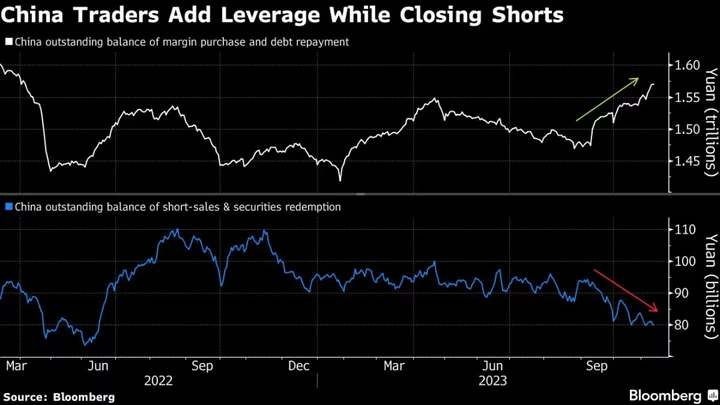China’s equity margin debt is climbing even as short-selling continues to decline, a disparity caused by two different regulatory moves both aimed at reviving its slumping market.
The total outstanding margin balance in Shanghai and Shenzhen has risen to the highest since April 2022. Leveraged positions are on track for a third-straight month of increase after the securities watchdog lowered the deposit ratio for such trading.
At the same time, the total value of Chinese onshore stocks sold short has dropped to the lowest since June 2022. A rule that hedge funds wishing to short-sell a stock must hold 100% of the value of the transaction in their account while other investors need to hold 80% took effect two weeks ago.
The regulatory moves followed a July Politburo meeting pledge to “invigorate capital markets and boost investor confidence.” While the measures have addressed investor complaints of possible culprits behind market weakness, they have failed to spark upward momentum.
Rare China Vow on Market Support Puts Beijing’s Toolkit in Focus
Other efforts have included slowing the pace of initial public offerings, curbing sales by some top shareholders and cutting the stamp duty on stock transactions. Still, the benchmark CSI 300 Index is down more than 7% this year, among the worst-performing major markets globally.

